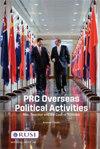Conclusions
Q4 Social Sciences
引用次数: 0
Abstract
Unlike most analyses of Mogadishu’s security governance, which concentrate on high-level developments involving the international community’s plans for Somalia’s stabilisation and political progress, this Whitehall Paper explores the ways in which the city’s Somali inhabitants assess street-level threats and try to mitigate insecurity. It uses Mogadishu’s city security plan and its constituent parts – most notably, the Waberi district neighbourhood-watch scheme – as an entrance into the city’s security dynamics. This enables a consideration of issues such as the connections between counterterrorism and community safety, the contribution of community cohesion and mobilisation to sustainable civilian policing, and the potential of ICT to improve the police– community engagement on which stateand capacity-building is thought to depend. In other words, the city security plan and neighbourhoodwatch scheme allow for a concrete conceptualisation of problems and problem-solving that help to generate insights into the nature of (in)security in an otherwise inaccessible environment. They also allow an exploration of the interface between three issues usually kept separate: hard and soft security; formal and informal policing provision; and international and local perspectives on security. The result is a more balanced picture of the city’s security provision. Mogadishu’s security environment is shaped by terrorist, insurgent, criminal and militia networks entrenched in clan identity politics, all of which are exacerbated by chronic violence, poverty, deprivation, inequality and alienation. Although security is formally the responsibility of the FGS, the Benadir Regional Administration, the SPF and NISA, most people rely on informal providers, such as local clanand district-based militia. However, sharply distinguishing between formal and informal provision is misleading because the borders between the two are porous and shift according to need. Thus, the city security plan draws on information collected by illiterate women who rely on clan-based protection, but choose to visit police stations to discuss their concerns,结论
与大多数对摩加迪沙安全治理的分析不同,这些分析集中在涉及国际社会对索马里稳定和政治进步的计划的高层发展上,这份白厅文件探讨了这座城市的索马里居民评估街头威胁并试图减轻不安全的方式。它利用摩加迪沙的城市安全计划及其组成部分- -最值得注意的是瓦贝里区邻里监视计划- -作为进入城市安全动态的入口。这使得人们能够考虑诸如反恐与社区安全之间的联系、社区凝聚力和动员对可持续民事警务的贡献、以及信息通信技术改善警察与社区参与的潜力等问题,而警察与社区参与被认为是国家和能力建设所依赖的。换句话说,城市安全计划和邻里监督计划允许对问题和解决问题的具体概念化,这有助于深入了解在其他难以进入的环境中安全的本质。它们还允许探索通常分开的三个问题之间的接口:硬安全与软安全;提供正式和非正式警务;以及对安全问题的国际和本地视角。其结果是一个更平衡的城市安全供应的画面。摩加迪沙的安全环境是由根植于部族身份政治的恐怖主义、叛乱分子、犯罪分子和民兵网络构成的,所有这些都因长期暴力、贫穷、剥夺、不平等和疏远而加剧。虽然安全事务的正式职责是由FGS、贝纳迪尔地区管理局、SPF和NISA负责,但大多数人依靠非正式的提供者,例如当地的土地地区民兵。然而,严格区分正式和非正式提供是误导的,因为两者之间的边界是多孔的,并根据需要而变化。因此,城市安全计划利用了文盲妇女收集的信息,这些妇女依靠宗族保护,但选择去警察局讨论她们的担忧,
本文章由计算机程序翻译,如有差异,请以英文原文为准。
求助全文
约1分钟内获得全文
求助全文
来源期刊

Whitehall Papers
Social Sciences-Archeology
自引率
0.00%
发文量
12
期刊介绍:
The Whitehall Paper series provides in-depth studies of specific developments, issues or themes in the field of national and international defence and security. Published three times a year, Whitehall Papers reflect the highest standards of original research and analysis, and are invaluable background material for policy-makers and specialists alike.
 求助内容:
求助内容: 应助结果提醒方式:
应助结果提醒方式:


